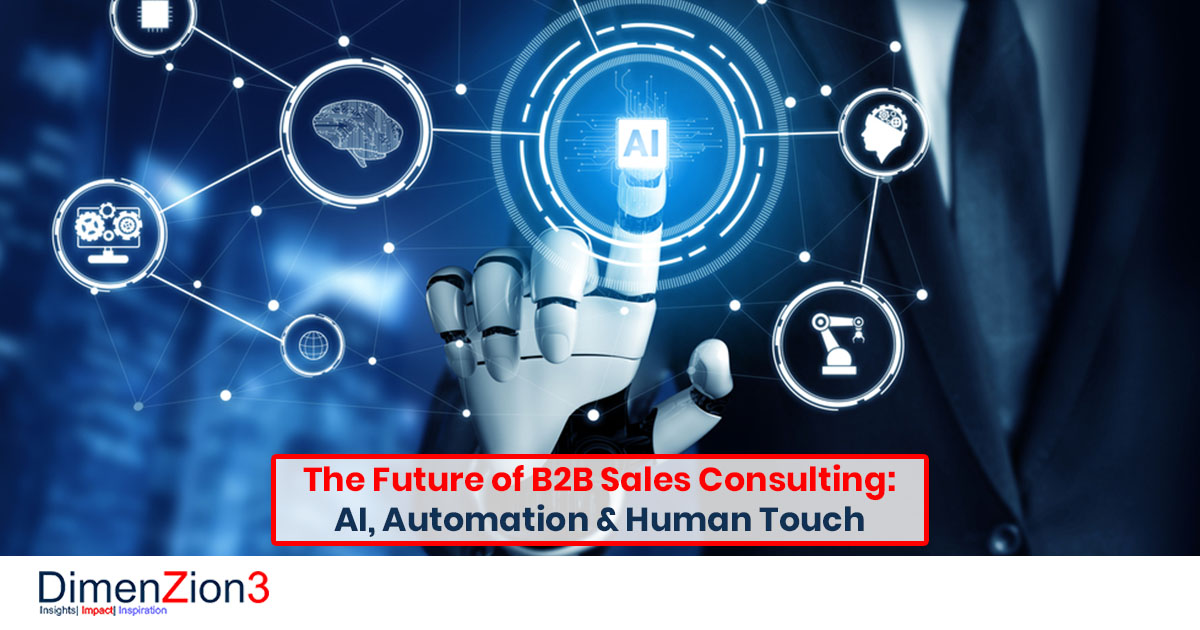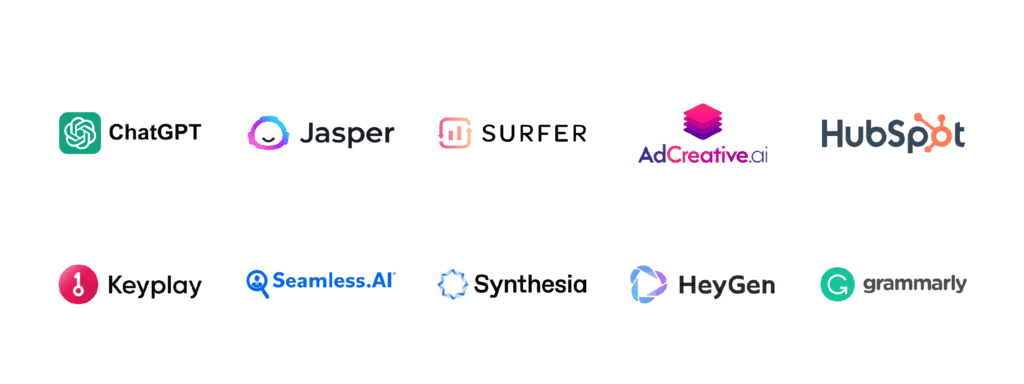The Future of B2B: Utilizing AI Automation to Drive Success
The landscape of B2B is moving as companies progressively turn to AI automation for strategic advantage. This transformation guarantees to enhance performance and customer involvement through innovative innovations. However, the integration of these tools is not without its obstacles. Understanding exactly how organizations can navigate this progressing surface will be vital for future success. What variables will identify the efficiency of AI in this field? The answers may redefine standard organization versions.
Recognizing AI Automation in B2B
As businesses progressively look for performance, recognizing AI automation in B2B comes to be crucial. AI automation refers to making use of man-made intelligence technologies to enhance and streamline business procedures. In the B2B field, this entails the combination of AI tools to manage jobs such as information evaluation, client interactions, and supply chain operations. By leveraging equipment discovering and all-natural language processing, companies can improve precision, lower human error, and speed up decision-making (Minarik AI). Additionally, AI automation facilitates the handling of big quantities of information, enabling services to extract beneficial insights and enhance their procedures. As companies browse this technological landscape, a thorough understanding of AI automation's capacities will encourage them to stay receptive and affordable to market needs
Secret Benefits of AI Automation for Companies
While several companies come to grips with raising operational needs, AI automation provides various advantages that can considerably enhance their efficiency. One significant benefit is performance; AI systems can do recurring tasks quicker and with better precision than people, therefore reducing mistakes and releasing up employees for more tactical initiatives. Additionally, AI automation enables data-driven decision-making by assessing substantial datasets promptly, giving insights that inform business strategies. Cost reduction is an additional crucial advantage, as automation lessens labor costs and enhances resource allowance. AI can improve scalability, allowing companies to adjust to market changes swiftly. Inevitably, the combination of AI automation fosters development, allowing companies to remain affordable in a rapidly progressing landscape.
Transforming Client Experiences With AI
AI is reshaping customer experiences by making it possible for individualized communications and improving engagement. Via the implementation of anticipating analytics, companies can prepare for consumer needs and preferences, leading to a lot more tailored services. Furthermore, enhancing assistance procedures with AI modern technology enhances effectiveness and complete satisfaction, inevitably changing the overall customer trip.
Personalized Communications and Engagement
Personalized interactions have actually become a keystone of effective consumer engagement in the B2B landscape. By leveraging AI-driven services, companies can customize their communication and offerings to meet the distinct demands of each customer. Automated systems assess client choices, information, and behaviors, making it possible for organizations to produce customized experiences that reverberate with their audience. This degree of personalization not only enhances consumer satisfaction yet likewise cultivates long-term commitment. Furthermore, AI tools facilitate real-time communications, enabling services to respond promptly and effectively to questions and comments. Because of this, business can build more powerful relationships with customers, guaranteeing that their solutions straighten with progressing assumptions. Ultimately, individualized engagement via AI leads to enhanced end results and sustained success in the competitive B2B market.
Anticipating Analytics Application
As companies increasingly look for to enhance consumer experiences, executing anticipating analytics has become an essential strategy in the B2B field. By leveraging data-driven insights, companies can expect customer requirements and choices, enabling them to customize their offerings much more properly. Predictive analytics makes use of historical information and sophisticated formulas to forecast future actions, allowing services to identify prospective obstacles and opportunities. This positive strategy not only enhances consumer complete satisfaction yet also promotes commitment by delivering timely and appropriate services. In addition, anticipating analytics assists in resource allowance, ensuring that marketing efforts are focused on high-value leads. Ultimately, the integration of predictive analytics furnishes B2B firms with the devices necessary to transform client interactions and drive lasting success in an increasingly competitive landscape.
Streamlining Assistance Processes
Enhancing consumer experiences in the B2B field prolongs beyond anticipating analytics; improving support processes plays a necessary duty. By incorporating AI-driven services, services can improve and automate routine questions action times, causing heightened consumer satisfaction. Chatbots and virtual assistants provide 24/7 assistance, addressing customer requires immediately and minimizing the problem on human representatives. This automation enables teams to concentrate on intricate concerns, promoting more meaningful interactions. AI tools can assess assistance data to recognize fads and areas for improvement, making certain constant enhancement of solution high quality. As organizations take on these innovations, they position themselves as receptive and customer-centric, ultimately driving commitment and company growth in a significantly affordable landscape.
Streamlining Procedures and Processes
Simplifying operations and procedures in B2B environments is vital for enhancing total effectiveness. By maximizing process performance and automating routine jobs, organizations can minimize manual mistakes and free up beneficial resources. This change not just enhances performance but additionally enables teams to concentrate on tactical campaigns that drive development.
Enhancing Operations Efficiency
Enhancing operations efficiency is necessary for businesses seeking to boost and reduce operational prices performance. By evaluating existing procedures, companies can identify bottlenecks and redundancies that impede efficiency. Implementing streamlined treatments boosts interaction and collaboration among groups, guaranteeing that tasks are finished a lot more promptly. Utilizing data-driven insights allows firms to make informed decisions that fine-tune operations additionally. In addition, adopting integrated modern technologies can facilitate seamless information flow, lessening the threat of delays and errors. As companies embrace these changes, they not only foster a more nimble workplace however likewise position themselves to respond quickly to market demands - Growth Systems For B2B. Ultimately, focusing on workflow efficiency allows organizations to assign sources successfully, driving long-lasting success in an increasingly competitive landscape
Automating Routine Tasks
Many organizations are progressively turning to automation to manage routine jobs, recognizing its possible to substantially improve functional performance. By releasing AI-driven services, companies can enhance recurring tasks such as data entry, billing processing, and customer questions. This shift not just minimizes human error but additionally maximizes valuable staff member time, enabling staff to concentrate on value-added tasks and critical efforts. Additionally, automation can enhance reaction times and solution consistency, leading to improved customer contentment. As companies browse a competitive landscape, leveraging automation for regular tasks comes to be necessary for preserving and optimizing process dexterity. Ultimately, this strategy promotes technology and drives growth, placing organizations for long-lasting success in the evolving B2B atmosphere.
Enhancing Decision-Making Via Data Insights

Getting Over Challenges in AI Application
AI application holds the assurance of substantial operational improvements, organizations frequently deal with a myriad of difficulties that can impede progression. Trick challenges consist of information top quality concerns, as several ventures have problem with irregular or insufficient datasets needed for reliable AI training. In addition, resistance to alter within the labor force can hamper the adoption of AI innovations, as workers may fear work variation or do not have the needed abilities. Budget plan constraints also offer an obstacle, restricting investment in the required infrastructure and ability. Integrating AI systems with existing procedures can be complicated, demanding significant time and sources. Getting rid of these difficulties necessitates a critical strategy that includes complete training, change monitoring, and a commitment to constant improvement in AI efforts.
Future Trends: The Following Frontier in B2B Automation
While the landscape of B2B automation proceeds to progress, emerging fads are positioned to redefine how organizations run. The integration of innovative expert system will certainly help with more individualized customer experiences, permitting companies to customize options precisely to client demands. Additionally, the rise of predictive analytics will certainly make it possible for organizations to anticipate market changes and maximize decision-making processes. Automation of routine tasks with robot process automation (RPA) will certainly boost efficiency, minimizing functional costs significantly. In addition, the adoption of blockchain innovation assures improved transparency and protection in transactions. As these advancements gain grip, firms will increasingly take advantage of AI-driven understandings to cultivate collaboration, improve supply chains, and improve total performance, marking a transformative shift in the B2B landscape.
Often Asked Concerns
What Sorts Of Organizations Can Benefit Many From AI Automation?
Manufacturing, logistics, and customer support organizations can profit most from AI automation. These sectors enhance operational efficiency, decrease expenses, and enhance client communications, inevitably bring about raised performance and productivity in an open market.
Just How Can Tiny Businesses Implement AI Automation Effectively?
Small companies can implement AI automation effectively by identifying recurring jobs, picking straightforward devices, making sure appropriate training for workers, and slowly integrating solutions to maximize operations while checking efficiency and changing techniques based on responses.
What Prevail False Impressions Concerning AI in B2B?
Typical misunderstandings about AI in B2B consist of the idea that it is only for large ventures, that it assures immediate results, which it can completely change human decision-making instead than enhancing it. AI Automation For B2B.
Just How Does AI Automation Effect Employee Responsibilities and Task Security?
AI automation improves worker duties by enhancing repetitive jobs, promoting efficiency and advancement. While some worry work loss, it commonly creates possibilities for upskilling and new positions, inevitably improving work safety through added worth and efficiency.
What Abilities Are Needed to Handle AI Automation Projects?

As organizations increasingly seek performance, understanding AI automation in B2B ends up being essential. AI automation helps with the handling of huge volumes of data, allowing organizations to extract useful understandings and optimize their operations. While lots of organizations grapple with increasing operational demands, AI automation offers countless benefits that can noticeably boost their performance. Automation of routine tasks with robot procedure automation visit here (RPA) will certainly boost efficiency, decreasing operational expenses substantially. Production, logistics, and consumer solution businesses can benefit most from AI automation.